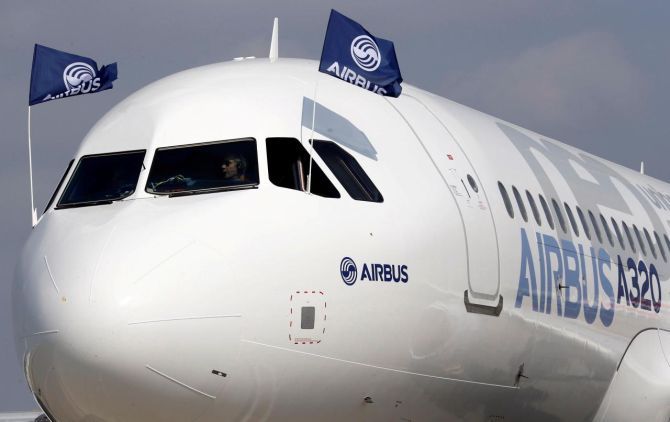The geared turbofan, a step-change in the efficiency of turbines for commercial aircraft, has been hit by a slew of design flaws that have grounded planes, delayed deliveries and prompted millions of dollars in compensation claims.

Pratt and Whitney (P&W) is racking its brains to find a solution to the glitches in the A320 Neo engines.
After rectifying flaws on three fronts - ranging from degradation in the combustion chamber to a faulty design in the seals - the engine maker is baffled yet again after airline pilots reported cases of vibration in the engine.
The vibration, sources say, is a result of the damage in the low pressure turbine blade of the geared turbo fan engines.
While P&W is officially investigating the reason behind the failure, sources in the DGCA suggest that it is an issue with the design of the seal that was introduced by the company after a problem with the knife edge compressor seal led to grounding of aircraft early this year.
As a solution to the problem, P&W had refitted the engines with dry face carbon seal.
“There have been very few isolated cases of low pressure turbine blade failure worldwide. Any time such failure occurs in flights, it results in increased engine vibration,” a person aware of the development said.
US regulator FAA is investigating the problem and is likely to issue an advisory detailing the manufacturing defects causing the problem.
Failure of the low turbine blade can be critical if the case is a result of breakage of seal.
This can result in loose pieces of the seal breaking and entering the compressor, combustor and turbines, leading to cases of in-flight shutdown.
“Pratt & Whitney is working closely with our customers to support their operations while continuing to retrofit the fleet to the latest engine configuration,” a spokesperson for the engine maker said while refusing to give details on whether the problems are new due to the previous engineering defects.
Spokespersons of IndiGo and GoAir, which use the particular variant of engine, said that their pilots haven’t reported any cases of excessive vibration.
However, last Saturday, a GoAir A320 Neo operating from Bengaluru to Pune was forced to return after the pilot got a warning for engine vibration.
Currently, nine aircraft of the two airlines are grounded as P&W struggles to provide spare engines to the airlines.
“The failures are being examined through detailed fractography examination at the laboratory and the results of the examination will determine the line of FAA’s advisory,” the person said.
Fractographic analysis is the first step in analysing the root cause of metal failure.
It begins with visual examination, followed by low power magnification (typically using a binocular microscope).
The geared turbofan, a step-change in the efficiency of turbines for commercial aircraft, has been hit by a slew of design flaws that have grounded planes, delayed deliveries and prompted millions of dollars in compensation claims.
In 2016, initially the aircraft started reporting oil metal detector warnings.
The third engine bearing compartment had a seal which didn’t work correctly at high flight levels.
The thin air caused the air riding seal members to sometimes oscillate.
This left metal particles in the engine oil, which gave warnings, pointing to a potential engine problem.
The manufacturer did a fix which was a change to a more classical carbon seal.
The third problem was combustion chamber linings which had unforeseen hot spots, reducing the linings operational life. The fix provided was a combustion chamber.
Early this year, however, a more serious problem surfaced.
A modified knife-edge seal introduced by P&W in late 2017 started showing signs of wear in the early cycle of its life.
The broken seal started damaging the compressor and turbine, causing in flight shutdowns.
Photograph: Regis Duvignau/Reuters











